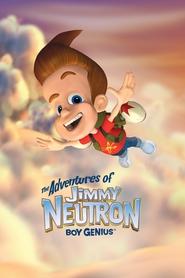Parliaments rarely debate television serials. Such, however, was the controversy surrounding Valeriia Gai-Germanika’s 69-part “Shkola” (“School”), shown on Russia’s Channel 1 in 2010, that several Duma Deputies called for its banning. Filmed with hand-held cameras and unknown actors, “Shkola” offered an uncompromising insight into problems afflicting Russian schools: racism, corruption, casual sex, suicide, drug-taking, self-harming, bullying, bribery, violence, and unremitting disorder in classrooms characterised by unimaginative teaching. “Shkola” posed unprecedented challenges to the boundaries of the permissible.School Season 1 Download
This article, however, evaluates the serial’s capacity to foster national cohesion, not in the “top-down” manner characteristic of state media events such as Victory Day, but through a multi-levelled dialectic of centre and periphery. Drawing on Jesus Martin-Barbero’s mediation theory, the article traces the dialectic through the serial narrative’s split structure: its oscillation between a naturalistic aesthetic based on metonymic displacements from society’s centre to specific conflicts at its margins, and a melodramatic sentimentalism suited to the metaphoric modelling of that centre and the articulation of a discourse of universal empathy. The dialectic facilitates a mutual engagement of voices (official patriotic, Soviet nostalgic, nationalist extremist, liberal oppositionalist, vernacular racist) in which each contaminates or revitalises the other and in which Gai-Germanika’s preferred universalist stance fails to prevail. The article includes an assessment of the broader implications of “Shkola” for public discourse in Russia.Parliaments rarely debate television serials. Such, however, was the controversy surrounding Valeriia Gai-Germanika’s 69-part “Shkola” (“School”), shown on Russia’s Channel 1 in 2010, that several Duma Deputies called for its banning. Filmed with hand-held cameras and unknown actors, “Shkola” offered an uncompromising insight into problems afflicting Russian schools: racism, corruption, casual sex, suicide, drug-taking, self-harming, bullying, bribery, violence, and unremitting disorder in classrooms characterised by unimaginative teaching. “Shkola” posed unprecedented challenges to the boundaries of the permissible. This article, however, evaluates the serial’s capacity to foster national cohesion, not in the “top-down” manner characteristic of state media events such as Victory Day, but through a multi-levelled dialectic of centre and periphery.

 1 - 1S1-Ep(1-15) Dec. 25, 2024
1 - 1S1-Ep(1-15) Dec. 25, 2024 1 - 2S1-Ep(16-30) Dec. 25, 2024
1 - 2S1-Ep(16-30) Dec. 25, 2024
![School [Shkola]](https://i.ibb.co/yQshNwb/MV5-BZTdi-Mz-M4-Nz-Yt-Zm-Nm-YS00-Yj-Uz-LThi-ZTIt-OGE4-YWM4-ODE3-YTI1-Xk-Ey-Xk-Fqc-Gde-QXVy-NDA4-Nz-M.jpg)




![School [Shkola]](https://i.ibb.co/St3fFGy/MV5-BOWQx-MWYx-MWQt-Nm-Ux-OS00-M2-E2-LWE1-YWYt-M2-Zj-Ym-Rl-N2-Nk-NGE3-Xk-Ey-Xk-Fqc-Gde-QXVy-NDA4-Nz.jpg)




![Baki Hanma [Season 2]](https://image.tmdb.org/t/p/w185/mHMKMla5q7jThEEqzINPbozMPKe.jpg)




![Rise of Empires: Ottoman [Season 2]](https://image.tmdb.org/t/p/w185/bQ89Ekr6oCQpeU3UuwgLxpCx9W1.jpg)

